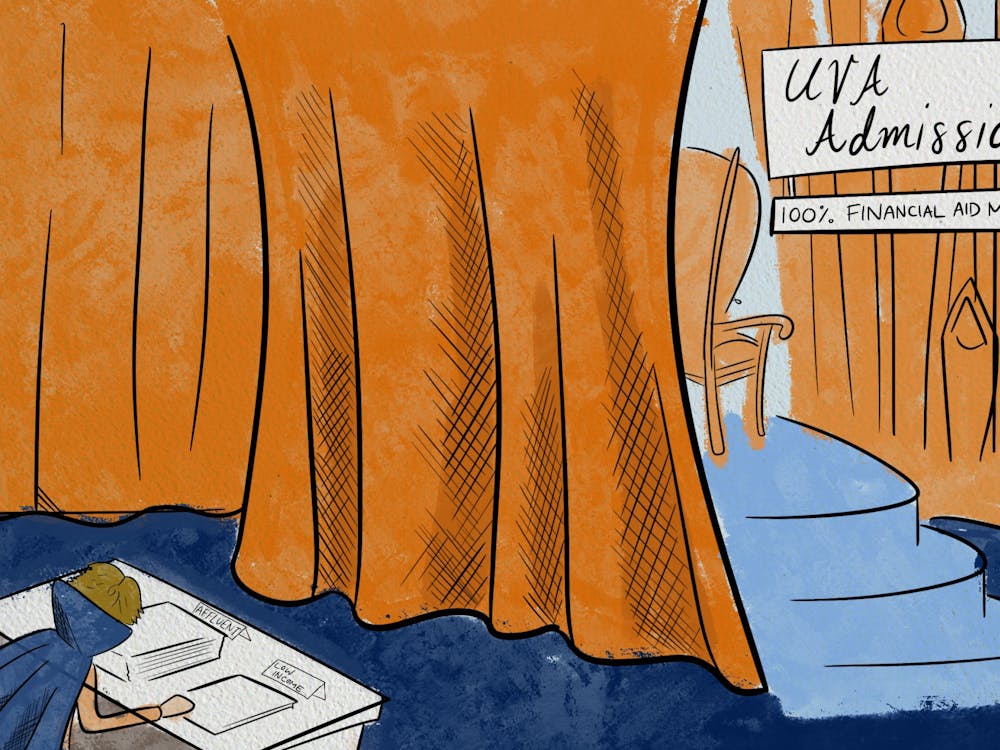If there was a common tenor to the barrage of anger, emotion and confusion that was my Facebook feed last night, it fell along the lines of “How could this have happened?” For the many people like me who are surrounded — with the exception of the odd tertiary-level acquaintance and extended family member — by like-minded liberals, the results of Nov. 8 are jarring. At least if most of the post-election rhetoric is any indication, this shellshock has taken three main forms. Initially and most conspicuously comes anger directed at those who voted for Donald Trump. Then comes the disbelief that around 4 percent of the country voted third party when their collective voice could have swung the election. Finally comes the vitriol for those who abstained out of apathy or protest. But this presumed triumvirate of culpability is incomplete; it is lazy and inexcusable. The Democratic Party and all those who voted for Hillary Clinton in the primaries are complicit in whatever hellfire the next four years bring. Some serious introspection and tectonic structural and ideological reworking are in order.
A post-mortem of the Democratic primaries should have produced much more worry than it did. When presented with an opponent who was by any metric the least favorable candidate put forward by either major party in modern electoral history, Democratic primary voters returned fire with the second least favorable one. And the alternative? Of all the combinations of general election matchups between Republican and Democratic primary contenders, the widest polling margin of victory came from a Sanders-Trump contest; most major polls had Sanders at a +9 to +15 spread. This begs the question: what compelled Democratic voters, who presumably would value avoiding a Trump White House over any one Democrat taking office, to pull the trigger on Clinton? Surely the answer is multifaceted, but among its constituent parts is a blind, prideful belief that a majority of the country could never vote for a man like Trump, and a selfish willingness to narrow the margin of certainty to protect their vision of the Democratic platform.
It is of paramount importance to note this is in no way an indictment of any part of Clinton’s platform, qualifications or track record. More ink has been spilled by punditry, and more wisdom dispensed by experts, on why Clinton would have made an excellent head of state than I can hope to match. But that is not the issue. The issue is that the Democratic establishment and its voter base demonstrated a plain inability to guard against how her career and longevity in the spotlight could be bent, twisted, repackaged and resold to disgruntled and undecided voters as a welcome basket to the Republican Party The riskiness of a Clinton candidacy is not merely apparent in hindsight; during the primaries she polled poorly against the various Republican contenders. More concerningly, this now demonstrable lack of electability and resultant risk of a Trump presidency was articulated with great volume and clarity by the Sanders camp during the primaries, but fell upon deaf ears. Even now, I am succumbing to the temptation to be vindictive and point fingers, albeit at a subsect of my own party. But that is not productive. Ways to move forward and rebuild must drive the discussion.
For the Democratic Party the path ahead must involve two key things: a populist-leaning party wing, and a distancing from elitism and nepotism at the highest levels. For all the types of inclusion liberals have admirably tried to weave into the Democratic platform, welcoming of white working class voters is not one of them. Pulling this demographic into the fold with concrete policy proposals for post-industrial economic revitalization in places like the Rust Belt is imperative. If you are a liberal and you need an illustration, go to a place like Reading, Pennsylvania, or Toledo, Ohio, and the urgency of this change in paradigm will become clear. On a related but arguably more important note, the Democratic National Committee must find a way to rid itself of its crippling culture of elitism and nepotism that has been the Democratic zeitgeist this millennium. When Debbie Wasserman-Schultz vacates chairmanship of the committee for reasons clouded in scandal and almost immediately signs onto the Clinton campaign, even the most erstwhile liberal can sense that openness and equity do not occupy a high rung on the ladder of priorities for the party.
Ultimately, if nothing else I hope that Slovenian philosopher Slavoj Zizek was right in his video interview about the election last week. Trump’s startling victory must catalyze radical, long-lasting change in how the political elite interact with the citizenry. That starts with how we, the most privileged, educated crust of the progressive movement dissect and process this election. Allow space for anger over the bigotry, sexism and ignorance that has once again reared its ugly hydra heads, but do not let that absolve you of the necessity for more than a little bit of tough, gritty introspection on how the system to which we all contribute played a role in what we must now all face for at least the next four years.
Jeremy Kemp is a fourth-year College student.




